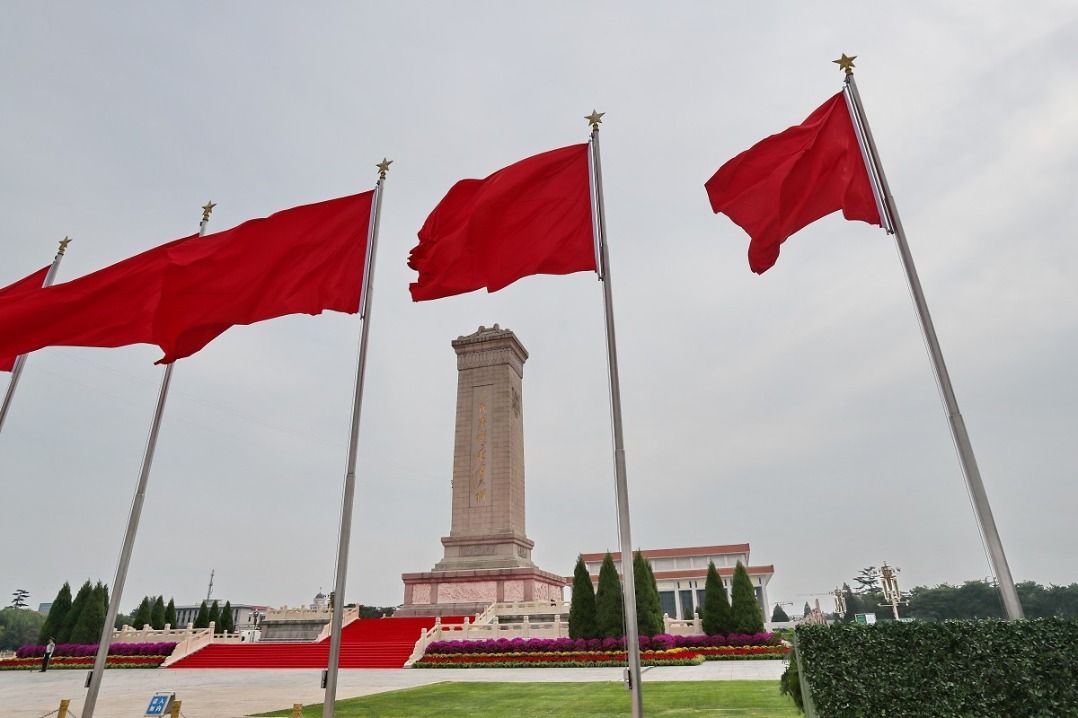Collaboration with China bolsters climate-vulnerable nations


Standing in Bo'ao for a discussion on marine protection and cooperation, I think of a Chinese phrase, - "Hai Na Bai Chuan" (海納百川)-which means "the ocean is vast enough to embrace our differences".
The flowers, trees, beaches, and warm tropical breezes here in Bo'ao constantly remind me of the Philippines. We share the same sun and the same wind. We even share typhoons, floods, and smoke when forests go up in flames.
Climate change impacts do not see borders or check passports. They cross and hit as they like, as we approach the critical 1.5 degrees Celsius threshold dangerously fast, threatening billions of people in coastal regions like Hainan and climate vulnerable countries, such as the Philippines and Vietnam.
China, the Philippines and Vietnam, as well as other climate vulnerable countries, have been strong allies in the protection against 1.5 degrees Celsius.
In 2016, climate-vulnerable country ministers assembled for the global climate negotiations in Marrakech to announce their aspiration to pursue climate ambition with or without the US, whose newly elected president had no interest whatsoever in protecting against 1.5 degrees and wished to leave the climate negotiations table. Many countries were invited, and China responded first.
We will always remember Minister Xie Zhenhua's words for our ministers – that they can count on China to help them deliver their climate and development objectives, that China stands with vulnerable countries to protect the planetary threshold. We will always know that 1.5 is alive because we worked with China. We know it will be kept alive when we continue to work with China.
Such memories of cooperation in Marrakech should be what we carry forward. It is urgent we join forces to protect our shared temperature boundary of 1.5 degrees Celsius. Such a cooperative spirit is particularly crucial nowadays when confrontational challenges in the seas between Hainan, the Philippines and Vietnam are being made complicated by interference from the other side of the Pacific.
We must not trespass the 1.5 border. Instead of highlighting conflicts over waters between us, we should strengthen cooperation to accerlate the global energy transitions. Those of us who come from climate-vulnerable countries know prosperity can be reached but only when we aim for a modern, resilient economy powered by clean energy.
Today, climate change and debt have become dangerously interlinked. The greater the impact, the deeper the debt. And as the debt grows, it reduces the ability of our countries to adapt to climate change. Our economies, therefore, also become healthier when our balance of payment issues evaporate as we stop exporting cash and become less dependent on fossil fuels.
We can achieve economic self-determination and energy independence faster when we harness our own renewable energy wealth. But we also need reliable partners. China's support for renewable energy is powering the global energy transition. Chinese supply capacity outstrips global demand for solar equipment, lithium-ion batteries, hydrogen electrolysers and wind turbine nacelles today. China is helping massively drive down costs in low carbon transport, and in onshore and offshore wind.
A huge but hardly discussed benefit of economic transformation powered by renewable energy is that it unleashes forces of democracy. China is helping accelerate global democratization as renewable energy spreads to macro and local levels, through rooftop solar and the spread of community-level micro, small, and medium enterprises using the power of the digital economy to power neighborhood businesses and rural and urban development.
Today, the Climate Vulnerable Forum (CVF) is composed of 68 governments from Asia, Africa, the Caribbean, Latin America, and the Pacific. Any cooperation between CVF, with a combined population of 1.74 billion people, and China, with its 1.4 billion people, benefits almost half the world's population.
Almost 70 years ago, a global conference, then representing half of the world's population, was held in Bandung, Indonesia. That meeting signaled to the world the irreversible determination of developing countries to assert together that world peace can only be truly achieved with genuine multilateralism. Bandung gave birth to the Non-Aligned Movement. Given the climate crisis today, shouldn't we be bolder in Bo'ao? Isn't it time to establish a global Climate-Aligned Movement?
The Climate Aligned Movement's objective is not just to reduce emissions, which should be the priority of economies historically responsible for climate change. Our objective is climate prosperity for our people.
Renato Redentor Constantino is special envoy for Secretary General Mohamed Nasheed of the Climate Vulnerable Forum. This piece is based on a speech Constantino delivered at the Boao Forum for Asia Annual Conference 2024 on Marine Protection and Cooperation. The views don't necessarily reflect those of China Daily.
If you have a specific expertise, or would like to share your thought about our stories, then send us your writings at opinion@chinadaily.com.cn, and comment@chinadaily.com.cn.
































